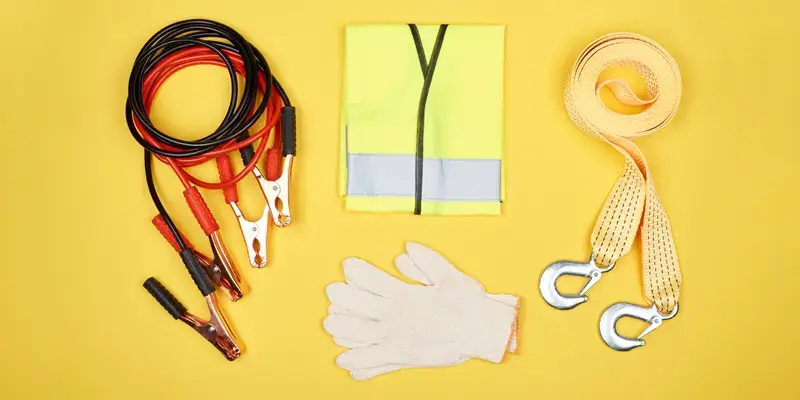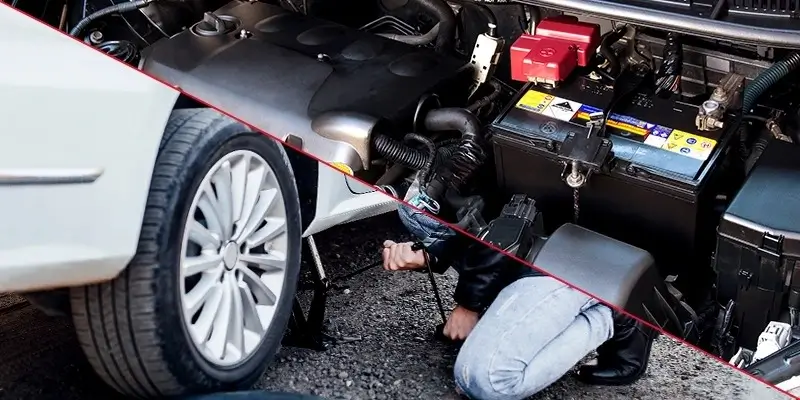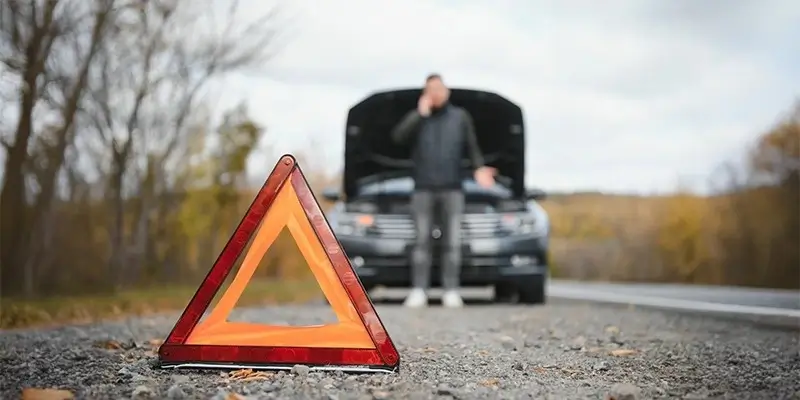Roadside emergencies can happen unexpectedly, no matter how well you maintain your vehicle. Whether it’s a flat tire, engine breakdown, or running out of fuel, being unprepared can turn a minor inconvenience into a major ordeal. To ensure your safety and reduce stress, it’s essential to equip your car and yourself with the tools and knowledge needed to handle these situations effectively.
Guide to prepare your car for roadside emergencies.
1. Equip Your Car with an Emergency Kit
An emergency kit is your first line of defense in a roadside emergency. Include the following essentials:
- Basic tools:Screwdrivers, pliers, adjustable wrench, and a jack
- Jumper cables:To restart a dead battery.
- Flashlight and extra batteries:For visibility in low-light conditions.
- First-aid kit:For treating minor injuries.
- Reflective warning triangles and flares:To alert other drivers and ensure safety.
- Multi-tool or Swiss knife: A versatile addition for quick fixes.
- Blankets and gloves:For warmth during cold weather.
- Non-perishable snacks and bottled water:To stay hydrated and energized.
2. Perform Routine Maintenance
Regular vehicle maintenance reduces the likelihood of unexpected breakdowns. Pay attention to these areas:
- Tires:Check air pressure and tread depth regularly. Don’t forget to inspect the spare tire.
- Battery:Ensure it’s charged and free of corrosion.
- Fluids:Top up essential fluids like engine oil, coolant, brake fluid, and windshield washer fluid.
- Lights:Verify that all headlights, taillights, and indicators are functioning.
- Belts and hoses:Look for signs of wear and replace them as needed.
3. Keep Emergency Contacts Handy
Save contact numbers for roadside assistance services, tow truck companies, and your insurance provider. It’s also wise to have a family member or friend’s contact saved for emergencies.
4. Learn Basic Car Repair Skills
Understanding how to perform minor repairs can be a lifesaver during emergencies. Learn these basic skills
- Changing a flat tire.
- Jump-starting a car.
- Checking and refilling fluids.
- Replacing windshield wipers.
- Invest in Modern Safety Features
Many modern vehicles come with built-in safety features like tire pressure monitoring systems, navigation assistance, and roadside assistance alerts. If your car lacks these, consider investing in portable devices such as GPS trackers or dash cams.
5. Prepare for Extreme Weather
Different climates require specific preparations:
- Winter: Carry snow chains, an ice scraper, and de-icer spray.
- Summer:Ensure your cooling system is functional and carry extra coolant.
- Rainy Season:Check your windshield wipers and tires for effective performance on wet roads.
6. Plan Your Trips Carefully
Before embarking on a journey, follow these steps:
- Check the weather forecast and road conditions.
- Plan your route and identify gas stations and rest stops.
- Ensure your phone is fully charged and carry a portable charger.
7. Stay Calm and Safe During Emergencies
If you experience a roadside emergency:
- Pull over to a safe location, preferably away from traffic.
- Turn on your hazard lights to alert other drivers.
- Use reflective triangles or flares to make your vehicle visible.
- Stay inside your car with the doors locked, especially in unfamiliar areas.
Swift and Reliable Roadside Assistance with Royal Swiss Auto Recovery in the UAE
Roadside emergencies don’t have to be daunting if you’re well-prepared. By equipping your car with an emergency kit, staying on top of maintenance, and learning basic repair skills, you can handle most situations with confidence. Remember, preparation is key to ensuring your safety and minimizing stress during unexpected situations.
Being proactive today can save you from trouble tomorrow—so take the time to prepare your car and enjoy peace of mind on the road!







